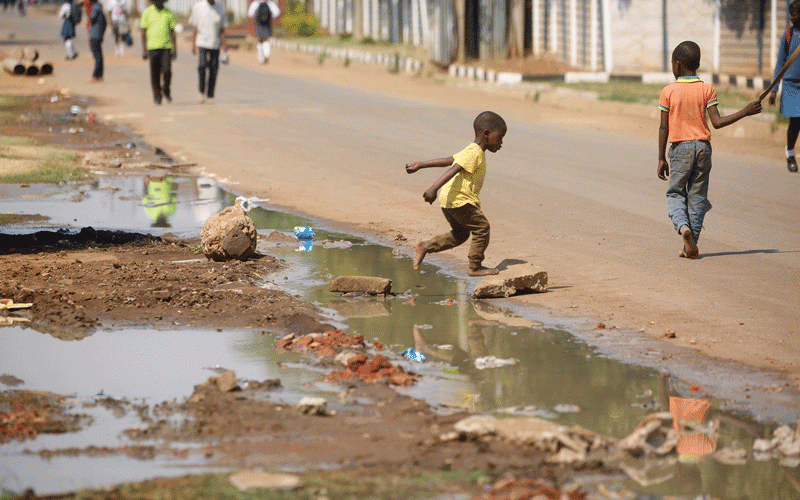
HARARE City Council yesterday declared a state of emergency over the cholera outbreak which has spread throughout the city, invoking memories of the deadly 2008 pandemic.
Mayor Ian Makone said the city was back to 2008 when an outbreak killed over 4 000 people and affected close to 100 000 others countrywide.
The outbreak only abated after international organisations such as the United Nations and USAID intervened.
“We have declared a state of emergency because of cholera,” Makoni said after an emergency council meeting.
“The cholera outbreak has been caused because we do not have adequate water supplies in the city. Many people have turned to boreholes and wells which are contaminated. What we are seeing, we last saw in 2008 when the cholera outbreak closed the city and the country. The cholera outbreak has come with vengeance.”
In 2018, a state of emergency was also declared following 20 deaths and more than 2 000 cases related to typhoid and cholera. To date, the country has recorded over 7 000 cases and 142 deaths, with a number of high-density suburbs emerging as hotspots.
Council’s head of epidemiology and disease control, Michael Vere said the city had no capacity to contain the outbreak.
“We are not able to supply municipal water to most of the areas in the city. We now need water trucking, but we have few water bowsers which are broken,” he said
- Electoral violence looms: ZPP
- Zimbabwe’s 2023 elections: how to judge candidates’ social protection promises
- Letter from America: Is former president Donald Trump a hero or villain?
- Chidzivo, Tarakinyu clinch Kabag honours
Keep Reading
“We are now in a catch 22 situation because of the cholera. We have been getting help from our partners, but this is not adequate for us.”
As the outbreak spreads, NewsDay has established that some suspected Zanu PF activists are denying suspected non-party members access to boreholes drilled under the presidential scheme.
Government is drilling boreholes under the Presidential Borehole Drilling Scheme to ensure residents have access to clean and safe water to prevent the spread of cholera.
Chitungwiza Residents Trust director Alice Kuvheya said residents are being made to pay between US$5 and U$10 for them to access the precious liquid.
“Most of the boreholes drilled using the devolution funds are not functional. Some of these boreholes are being politicised. People are made to pay US$5 and US$10 and they are being locked. Only those who support the ruling Zanu PF party have access to the boreholes without paying,” Kuvheya said.
Combined Harare Residents Association director Reuben Akili said residents were being subjected to abuse by politicians.
“Disconnecting or locking boreholes so that people are not able to access water is a violation of the right to water for the residents. Even in Mabvuku, people had to engage the authorities so that their boreholes could be unlocked,” Akili said.
“Politicisation of water is not good, especially at a time when the country is grappling with a Cholera outbreak. We actually see that even beyond politics, some water user committees deliberately close those boreholes and then armtwist people to pay.”
A Kuwadzana resident, Josphat Dembo, said: “We are tired of this partisan politics that is putting our lives at risk. We all need water to survive, regardless of our political affiliation.”
But Zanu PF acting director for information Farai Marapira dismissed the allegations as false.
“The allegations cannot be true because the President has been very clear that he is a President to all Zimbabweans, regardless of political affiliation,” he said.
“It is not Zanu PF policy to segregate anyone on any basis, including partisan lines because Zanu fought for all Zimbabweans to be free and enjoy democracy which includes the right to political association of their choice.”
On Tuesday, government banned vendors from operating in the central business districts of major cities in response to the cholera outbreak.











